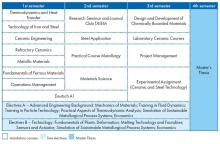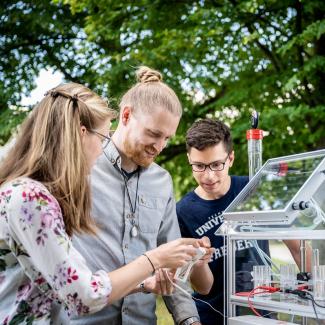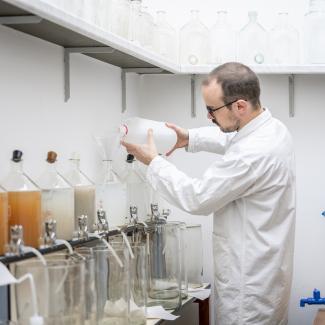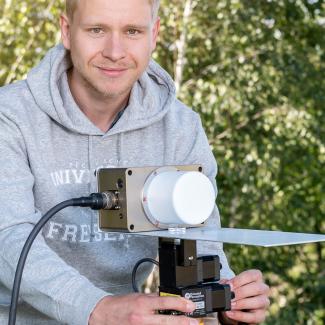Technology and Application of Inorganic Engineering Materials
Die anorganischen technischen Werkstoffe wie Stahl und Keramik decken alle strategischen Industriezweige ab und sind Schlüsselmaterialien für den Verkehrsbereich, die Energietechnik, den Maschinen- und Anlagenbau und die Bauindustrie. Das genaue Verständnis der mechanischen, thermischen, chemischen und funktionellen Eigenschaften auf Nano-, Mikro- und Makroebene sowie der chemischen und physikalischen Wechselwirkungen an den Grenzflächen der anorganischen Ingenieurwerkstoffe ist ein uneingeschränktes Werkzeug für ihre kontinuierliche Entwicklung und technologische Optimierung.
Im ersten Semester werden Kernmodule zu metallischen, keramischen und feuerfesten Werkstoffen, Thermodynamik und Mechanik von Werkstoffen sowie Schulungen in Partikeltechnologie und Fluiddynamik abgehalten. Im zweiten und dritten Semester folgen Vertiefungsmodule und Weiterbildungen zur Technologie und Anwendung von Werkstoffen sowie zur Simulation metallurgischer Prozesse. Darüber hinaus lernen die Studierenden in Labor- und Praktikumskursen, das theoretische Wissen in realen Anwendungen anzuwenden. Das vierte Semester ist für die Masterarbeit vorgesehen
Bitte beachten Sie, dass es sich um einen englischsprachigen Master-Studiengang handelt. Die Bewerbung erfolgt online über das Hochschulportal und ist möglich im Zeitraum vom 1. Januar bis 15. April.
- Fakultät
-
Fakultät 4 - Maschinenbau, Verfahrens- und Energietechnik
- Abschluss
-
Master of Science (M. Sc.)
- Regelstudienzeit
-
4 Semester
- Teilzeit möglich
-
Nein
- Studienbeginn
-
Wintersemester
- Zulassungsvoraussetzung
-
- Mindestens sechssemestriger erster berufsqualifizierender Hochschulabschluss im Fachbereich Maschinenbau, Verfahrenstechnik, Umweltengineering, Energietechnik, Werkstoffwissenschaften und Werkstofftechnologie, Naturwissenschaften oder vergleichbar
Sprachkenntnisse
- Englischkenntnisse: TOEFL 90 Punkte internet based test, oder IELTS 6.5 overall score.
- Studiengangsprache
-
Englisch
Eisen- und Stahlindustrie, metallverarbeitende Industrie, keramische und feuerfeste Industrie, Recycling- und Rohstoffindustrie, Universitäten und Forschungseinrichtungen.



